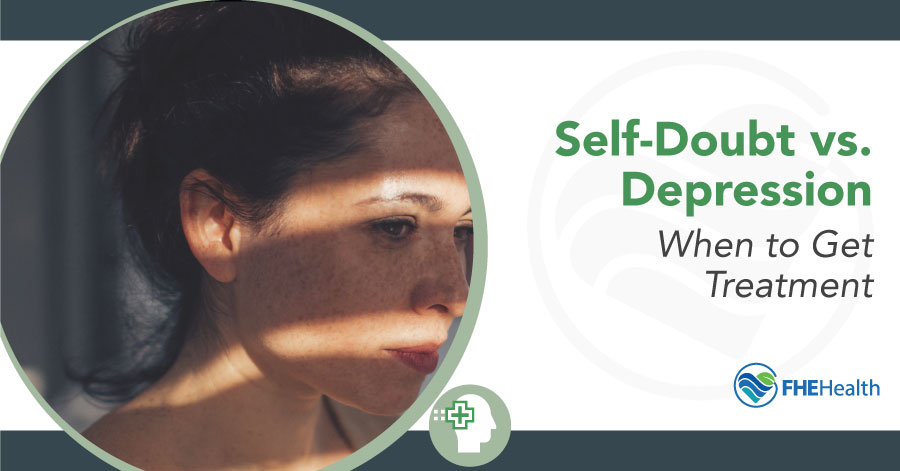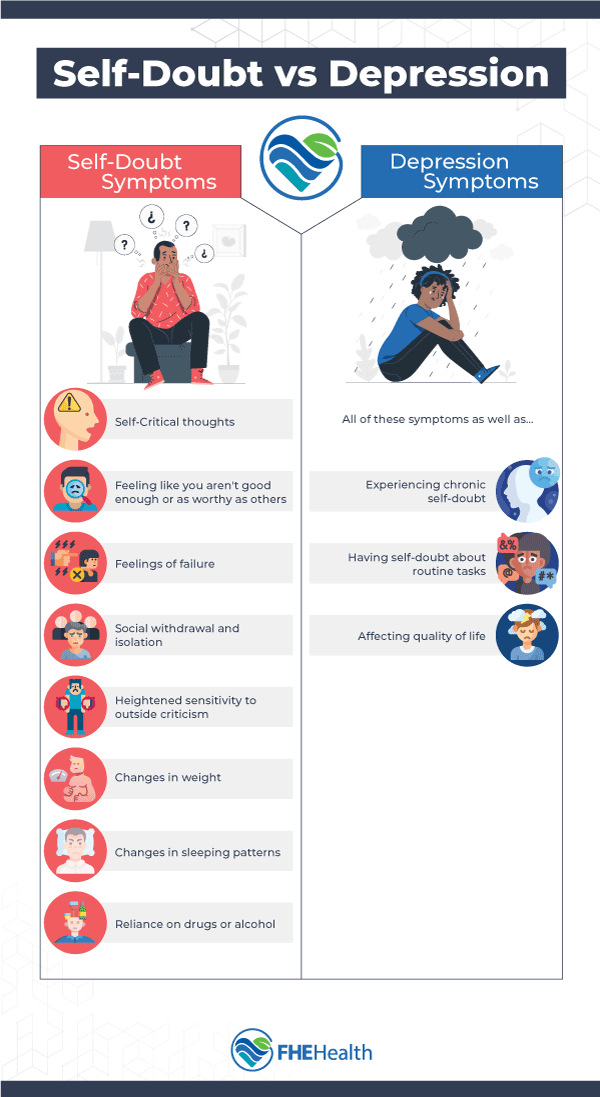
Have you ever felt nervous before going into a new social situation and worried people might not like you? Have you ever had thoughts like “I’m not good enough” or “Everyone else is so much more _______ than I am”?
If so, you’re already familiar with self-doubt. It’s a common human emotion. Most people are able to work through it, and the feelings eventually pass. But what if those thoughts and feelings are constant? What if you feel them for almost everything you do?

Experiencing self-doubt is normal. But as with most things, if it’s severe enough or impacts your quality of life, it could be a sign of a larger issue, such as a depressive disorder. It’s also not something you just have to live with. If your self-doubt is related to another mental health issue, treating the underlying condition can improve this symptom too. And even if it’s not, there are things you can do to overcome self-doubt to leave you feeling more confident and being more supportive and less critical of yourself.
Keep reading to learn more about what self-doubt is and how it relates to your overall mental health. That includes what you can do if your feelings of self-doubt or poor self-esteem are affecting your life.
What Is Self-Doubt?
According to Merriam-Webster, self-doubt is defined as “a lack of faith in oneself.” Another definition is “a feeling of doubt or uncertainty about one’s abilities, actions, etc.” Everyone experiences self-doubt sometimes, and this is normal. You may be nervous or worried about your ability to give a big presentation at work or wonder if you’ll be able to cook a new dish.
Signs of poor self-esteem include:
- Self-critical thoughts
- Feeling like you aren’t good enough or as worthy as others
- Feelings of failure
- Social withdrawal and isolation
- Heightened sensitivity to outside criticism
- Changes in weight
- Changes in sleeping patterns
- Reliance on drugs or alcohol
Self-doubt isn’t a problem in and of itself. It’s how you respond to the thoughts and feelings of doubt and what actions you take that define whether it’s something that needs to be discussed with a mental health professional. Some indications that an issue may need to be addressed include:
- You’re experiencing chronic feelings of self-doubt
- You have self-doubt about routine tasks such as going grocery shopping or taking care of your children
- Self-doubt is causing quality of life issues






